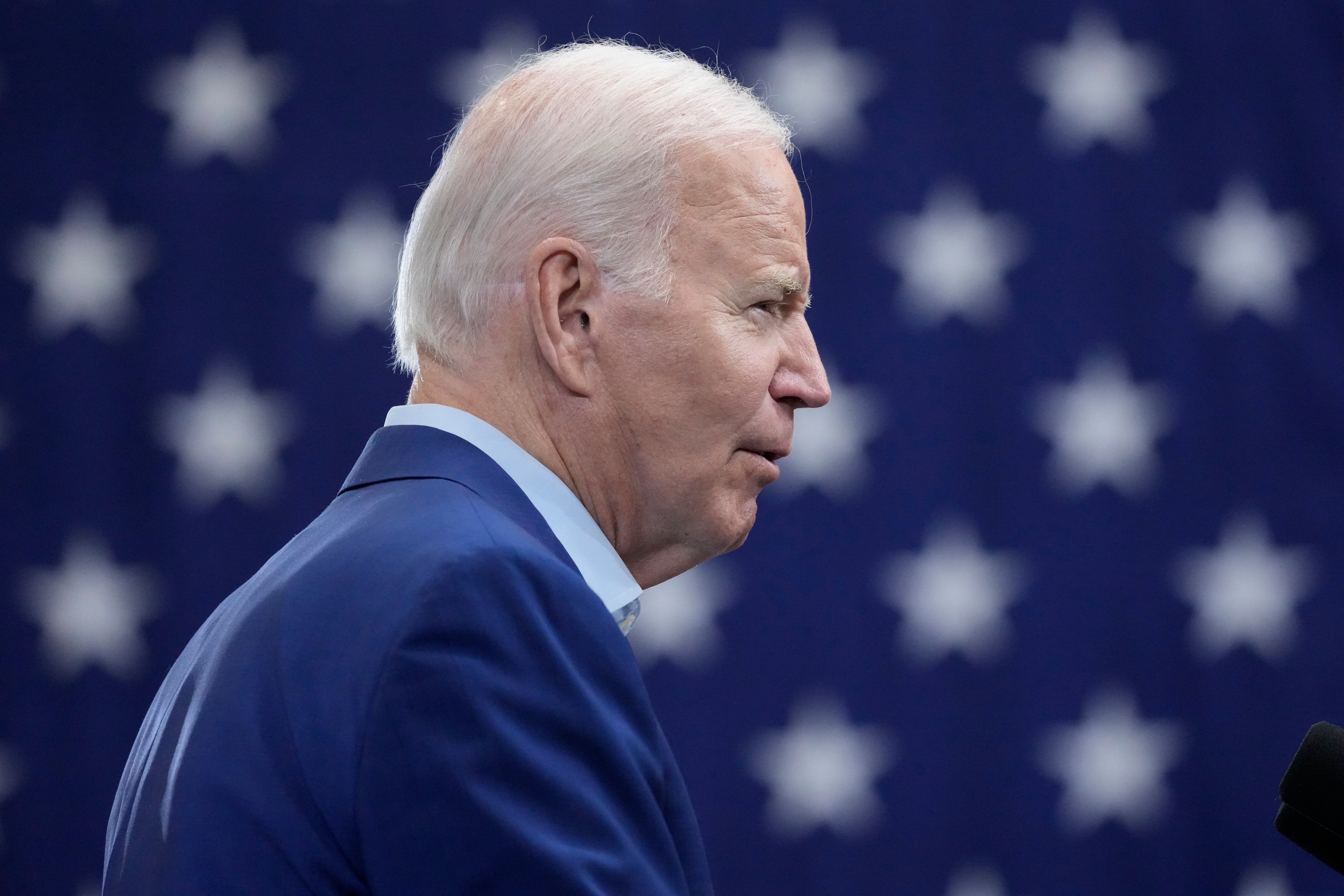Biden issues an executive order restricting U.S. investments in Chinese technology
In a sign of growing strains between the world’s two biggest powers, President Joe Biden has signed an executive order to block and regulate U.S.-based investments going toward China for advanced computer chips, micro electronics, quantum information technologies and artificial intelligence

Your support helps us to tell the story
From reproductive rights to climate change to Big Tech, The Independent is on the ground when the story is developing. Whether it's investigating the financials of Elon Musk's pro-Trump PAC or producing our latest documentary, 'The A Word', which shines a light on the American women fighting for reproductive rights, we know how important it is to parse out the facts from the messaging.
At such a critical moment in US history, we need reporters on the ground. Your donation allows us to keep sending journalists to speak to both sides of the story.
The Independent is trusted by Americans across the entire political spectrum. And unlike many other quality news outlets, we choose not to lock Americans out of our reporting and analysis with paywalls. We believe quality journalism should be available to everyone, paid for by those who can afford it.
Your support makes all the difference.In a sign of growing strains between the world's two biggest powers, President Joe Biden signed an executive order Wednesday that would block and regulate high-tech U.S.-based investments going toward China. It covers advanced computer chips, micro electronics, quantum information technologies and artificial intelligence.
Senior administration officials said that the effort stemmed from national security goals, rather than economic interests and that the categories it covered were narrow in scope. The order seeks to blunt China's ability to use U.S. investments in its technology companies to upgrade its military while also preserving broader levels of trade that are vital for both nations' economies.
The United States and China appear to be increasingly locked in a geopolitical competition, along with their deep trade relationship as the world's two largest economies. Biden administration officials have insisted that they have no interest in “decoupling” from China, yet the U.S. has limited the export of advanced computer chips, sought to limit investments into China and kept the expanded tariffs set up by President Donald Trump.
Biden has suggested that China's economy is struggling and its global ambitions have been tempered as the U.S. has reenergized its alliances with Japan, South Korea, Australia and the European Union. The administration consulted with allies and industry in shaping the executive order.
“Worry about China, but don’t worry about China,” Biden told donors at a June fundraising event in California.
The officials previewing the order said that China has exploited U.S. investments to support the development of weapons and modernize its military. The new limits would complement the export controls on advanced computer chips that were announced last year. The Treasury Department, which would monitor the investments, will announce a proposed rulemaking with definitions that would conform to the presidential order and go through a public comment process.
The issue is also a bipartisan priority. In July by a vote of 91-6, the Senate added as an amendment to the National Defense Authorization Act requirements to monitor and limit investments in countries of concern, including China.
Biden has called Chinese President Xi Jinping a “dictator” in the aftermath of the U.S. shooting down a spy balloon from China that floated over the United States. Taiwan's status has been a source of tension, with Biden saying that China had become coercive regarding its independence.
China has supported Russia after its 2022 invasion of Ukraine, though Biden has noted that the friendship has not extended to the shipment of weapons.
U.S. officials have long signaled the coming executive order on investing in China, but it's unclear whether financial markets will regard it as a tapered step or a continued escalation of tensions at a fragile moment.
“The message it sends to the market may be far more decisive,” said Elaine Dezenski, a senior director at the Foundation for Defense of Democracies. "U.S. and multinational companies are already reexamining the risks of investing in China. Beijing’s so-called ‘national security’ and ‘anti-espionage’ laws that curb routine and necessary corporate due diligence and compliance were already having a chilling effect on U.S. foreign direct investment. That chilling now risks turning into a deep freeze.”
China's strong economic growth has stumbled coming out of pandemic lockdowns. On Wednesday, its National Bureau of Statistics reported a 0.3% decline in consumer prices in July from a year ago. That level of deflation points to a lack of consumer demand in China that could hamper growth.
Separately, foreign direct investment into China fell 89% from a year earlier in the second quarter of this year to $4.9 billion, according to data released by the State Administration of Foreign Exchange.
Most foreign investment is believed to be brought in by Chinese companies and disguised as foreign money to get tax breaks and other benefits, according to Chinese researchers.
However, foreign business groups say global companies also are shifting investment plans to other economies.
Foreign companies have lost confidence in China following tighter security controls and a lack of action on reform promises. Calls by President Xi and other leaders for more economic self-reliance have left investors uneasy about their future in the state-dominated economy.
___
AP reporter Joe McDonald contributed to this report from Beijing.